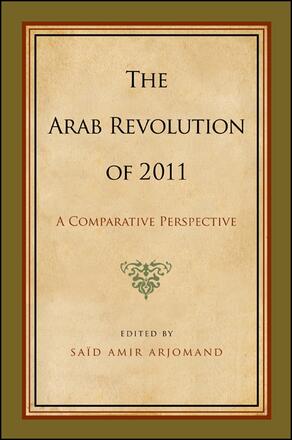
The Arab Revolution of 2011
A Comparative Perspective
Alternative formats available from:
Open access edition available from:
Comparative analysis of the 2011 Arab Spring uprisings.
Description
How do we make sense of the Arab revolution of 2011? What were its successes, its failures, and significance in world history? The Arab Revolution of 2011 brings together a broad range of perspectives to explain the causes, processes, and consequences of the revolution of 2011 and its critical implications for the future. The contributors, in this major addition to the sociology of revolutions, step back from the earlier euphoria of the Arab Spring to provide a sober analysis of what is still an ongoing process of upheaval in the Middle East. The essays address the role of national armies and foreign military intervention, the character and structure of old regimes as determinants of peaceful or violent political transformation, the constitutional placement of Islam in post-revolutionary regimes, and the possibilities of supplanting authoritarianism with democracy. The revolution of 2011 is also examined within a broad historical perspective, comparing the dynamics of revolution and counterrevolution in countries such as Tunisia, Egypt, and Libya with such epochal events as the European revolution of 1848 and Russia in 1917.
SUNY Press has collaborated with Knowledge Unlatched to unlock KU Select titles. The Knowledge Unlatched titles have been made open access through libraries coming together to crowd fund the publication cost. Each monograph has been released as open access making the eBook freely available to readers worldwide. Discover more about the Knowledge Unlatched program here: https://knowledgeunlatched.org/. It can also be found in the SUNY Open Access Repository at https://soar.suny.edu/handle/20.500.12648/8432.
Saïd Amir Arjomand is Distinguished Service Professor of Sociology and Director of the Stony Brook Institute for Global Studies at Stony Brook University, State University of New York. He is the author and editor of many books, including Social Theory and Regional Studies in the Global Age and (with Nathan J. Brown) The Rule of Law, Islam, and Constitutional Politics in Egypt and Iran, both also published by SUNY Press.